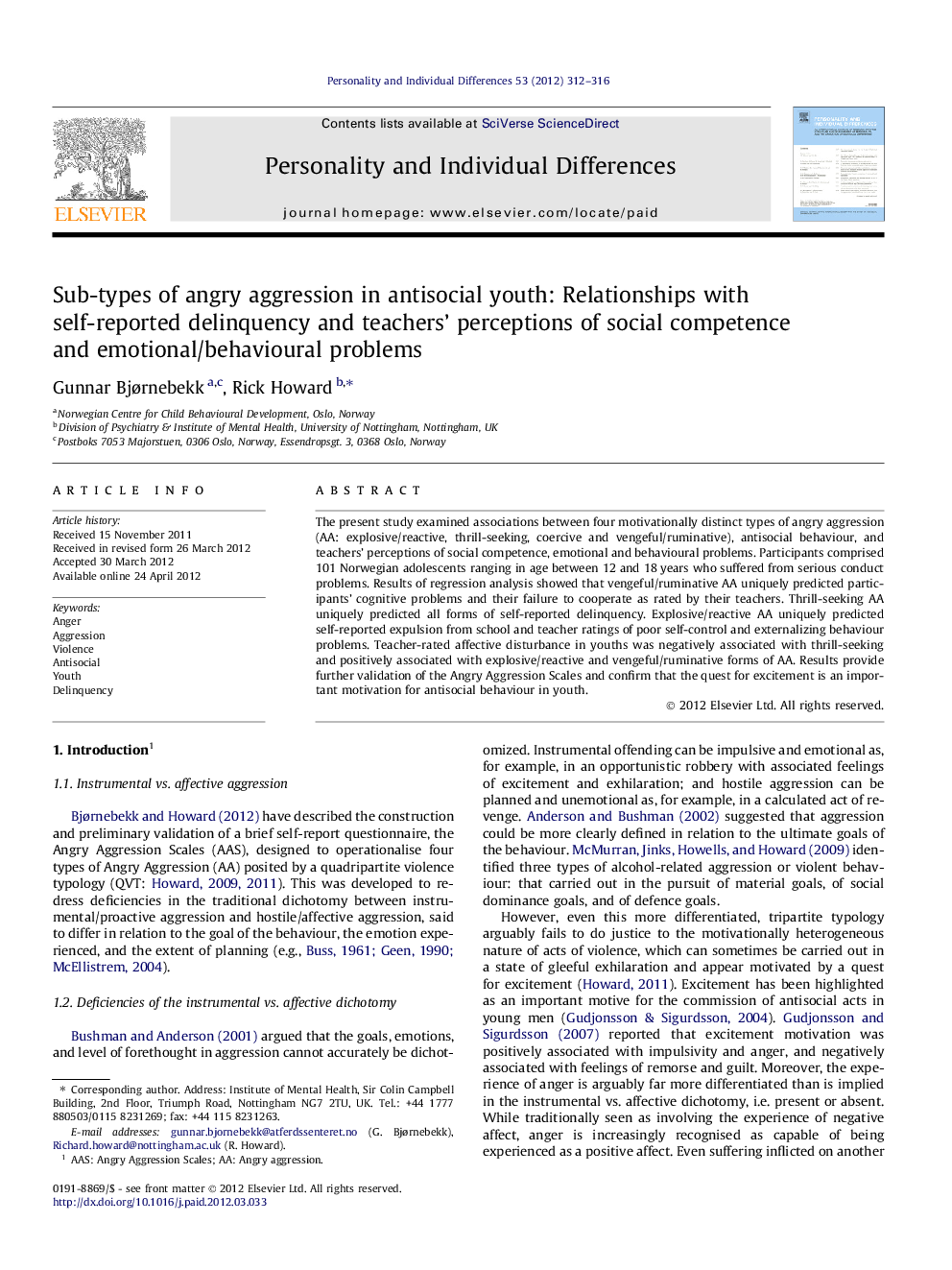| کد مقاله | کد نشریه | سال انتشار | مقاله انگلیسی | نسخه تمام متن |
|---|---|---|---|---|
| 891020 | 914019 | 2012 | 5 صفحه PDF | دانلود رایگان |

The present study examined associations between four motivationally distinct types of angry aggression (AA: explosive/reactive, thrill-seeking, coercive and vengeful/ruminative), antisocial behaviour, and teachers’ perceptions of social competence, emotional and behavioural problems. Participants comprised 101 Norwegian adolescents ranging in age between 12 and 18 years who suffered from serious conduct problems. Results of regression analysis showed that vengeful/ruminative AA uniquely predicted participants’ cognitive problems and their failure to cooperate as rated by their teachers. Thrill-seeking AA uniquely predicted all forms of self-reported delinquency. Explosive/reactive AA uniquely predicted self-reported expulsion from school and teacher ratings of poor self-control and externalizing behaviour problems. Teacher-rated affective disturbance in youths was negatively associated with thrill-seeking and positively associated with explosive/reactive and vengeful/ruminative forms of AA. Results provide further validation of the Angry Aggression Scales and confirm that the quest for excitement is an important motivation for antisocial behaviour in youth.
► Vengeful/ruminative anger uniquely predicted youths’ attention and thought problems.
► Thrill-seeking anger uniquely predicted all forms of self-reported delinquency.
► Explosive anger uniquely predicted expulsion from school and poor self-control.
► Vengeful/ruminative anger uniquely predicted teacher-rated lack of cooperation.
► Quest for excitement is an important motivation for youths’ antisocial behaviour.
Journal: Personality and Individual Differences - Volume 53, Issue 3, August 2012, Pages 312–316